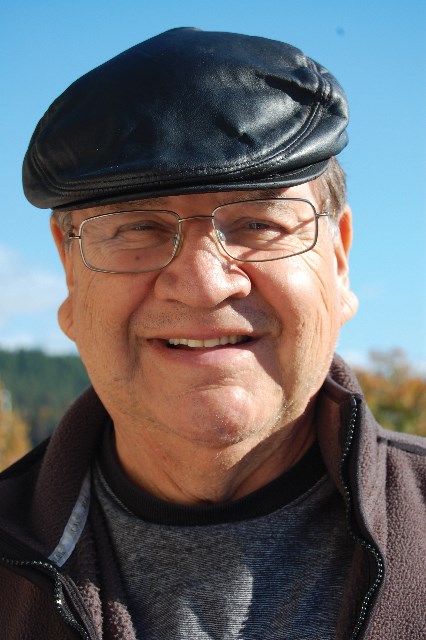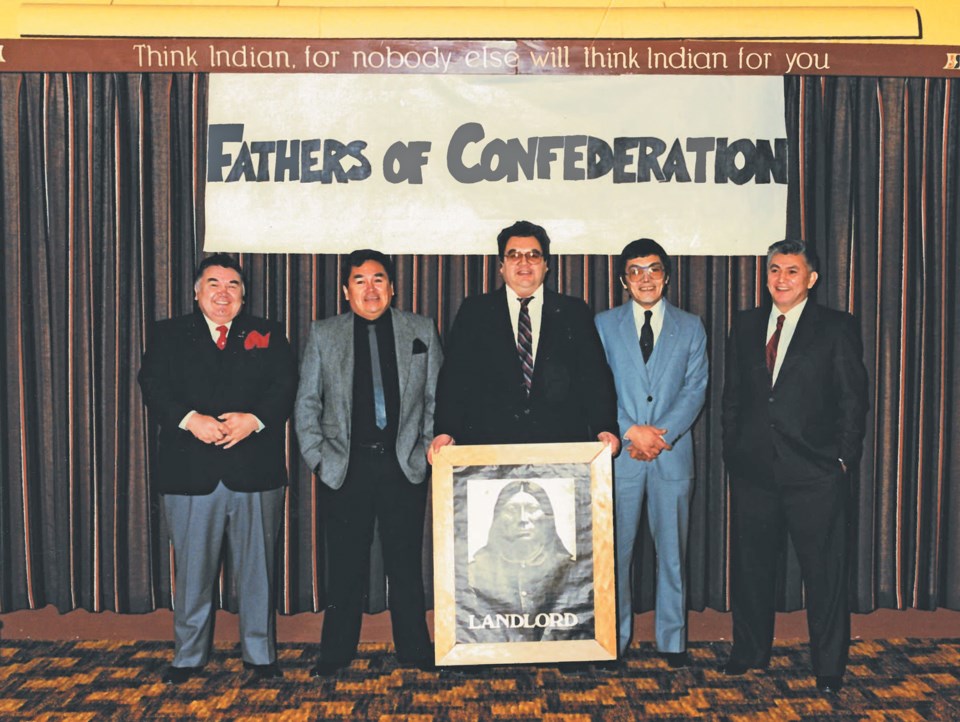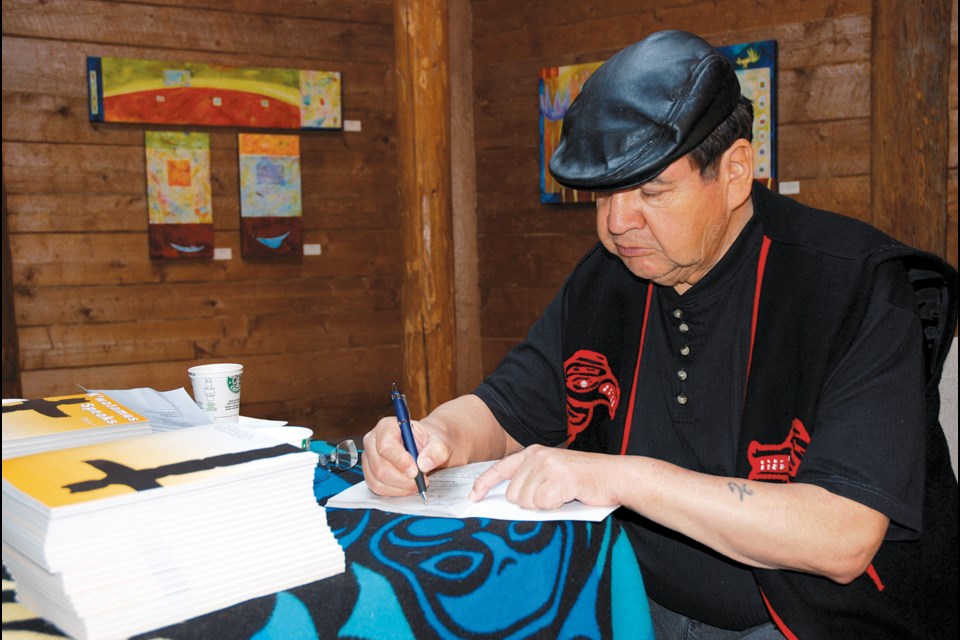Hundreds of people are expected to gather at the shíshálh Nation longhouse July 27 for a funeral service for former shíshálh chief Stan Dixon.
Dixon died last week at the age of 77, from complications of a serious stroke.
Dixon’s public life spanned shíshálh Nation politics, municipal politics and regional district politics on the Sunshine Coast.

He was first elected as a shíshálh Nation councillor in 1972, and would go on to serve as chief for two terms from 1983 to 1987 and would return as a shíshálh councillor in 1988 before getting involved in municipal politics as a Sunshine Coast Regional District director and three-term District of Sechelt councillor.
Dixon was elected as chief for a third time in 2005. He resigned before the end of his term but remained active in politics, running for District of Sechelt council in 2008 and 2011.
Dixon began working in logging at the age of 14 while completing his education, and worked at fishing and on tugboats as a young man. He was also an entrepreneur and consultant, running a gym where, as a successful amateur boxer himself, he trained others, in addition to running a trucking company and the Kahtou News in partnership with his wife, Lori Dixon.
“I’m kind of biased, but to me Stan was the finest man I’ve ever known,” Lori told Coast Reporter this week.
She said Stan was dedicated to promoting education throughout his life, both in business and politics – a dedication she shared. “Everyone should know the past. You have to know your past, but it’s really important not to live there. And how do you do that? Education. You can do whatever you want with a good education,” she said. “He said we need educated professionals in all areas of life, not just lawyers and doctors. We need people who are business oriented.”
Lori told Coast Reporter that it was Stan’s brother, the late Ted Dixon, who got him interested in politics, and their grandfather was a major influence on both Stan and Ted.
“His grandfather, Captain Joe Dixon, was instrumental in who Stan was because he made sure that he and Teddy knew what life was like without the Indian Act… They worked their whole lives to push that out of our lives, and they succeeded.”

Dixon is remembered by many on the Coast for his role as chief when the goal of achieving self-government was realized in 1986. It was a project that spanned many years and other chiefs and councils, but current shíshálh chief Warren Paull, who was a councillor when self-government was passed, said Dixon was the right man at the right time to lead the final push.
“I’m fairly confident it wouldn’t have happened without him. He was very determined.”
Paull said the work Dixon did to get the support of other levels of government was critical. “He was big on bridge building, he was big on collaboration, he was big on having a conversation with the neighbours and figuring out how you can make things work,” Paull said.
“He never believed in a no-win scenario. He always believed there was a way and he always found the way… He had a lot of great connections and he worked them. If he had friendships, he stayed in touch.”
Paull said that model of relationship building has carried forward in the Nation’s work on initiatives like the recent foundation agreement with the province.
“That was Stan’s true legacy in the sense of how he was able to find a way to build bridges.”
Lori Dixon also recalled Stan’s belief in seeing the Sunshine Coast as a whole.
“He loved everything between Langdale and Earls Cove… Stan used to say if things are going well in Egmont, things are okay in Roberts Creek. If things are going good in Port Mellon, things are going good in Pender Harbour,” she said.
Other politicians who worked with Dixon had similar memories to share.
Former Sechelt mayor Bruce Milne appointed Dixon as deputy mayor in 1996. It was Milne’s first term as mayor, and Dixon’s second on Sechelt council.
“Stan was a strong, confident leader with a vision of how our community could grow into the future. He was always coming up with fresh ideas on what would make Sechelt and the Sunshine Coast a better place. That is not to say he wasn’t challenging to deal with – strong leaders often are – and he faced lots of opposition over the years,” Milne said. “Stan often said he had ‘one foot in the white community and one foot in Indian country’ and that gave him a solid perspective on the work we needed to do.”
Powell River - Sunshine Coast MLA Nicholas Simons said Dixon was part of a leadership group that was prepared to take a position that wasn’t always supported by other First Nations, because they knew it was in the best interests of the shíshálh people.
“He was an excellent communicator who had friends from all walks of life,” Simons said.
Gordon Wilson, who served as MLA for Powell River-Sunshine Coast from 1991 to 2001, and also sat on the SCRD board with Dixon, said in a Facebook post, “His wisdom, sense of humour and insight into the commonality that makes up our human condition made him a leader who managed to complete what many thought was impossible.”
Dixon began writing the memoirs of his political life in the early 2000s. In 2008 he published book one of K’watamus Speaks. Book two was published in 2010.
During his campaign for re-election as chief in 1985, Dixon said, “I try to live every day as a chief. It’s a 24-hour job… I am accountable to my own people. Being chief is a very serious business to me.”
A traditional funeral will be held at the shíshálh Nation longhouse at 11 a.m. July 27.



